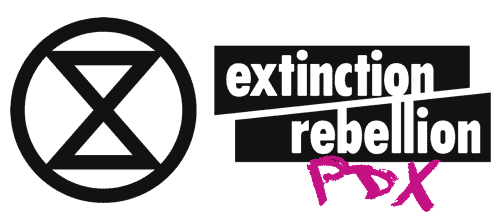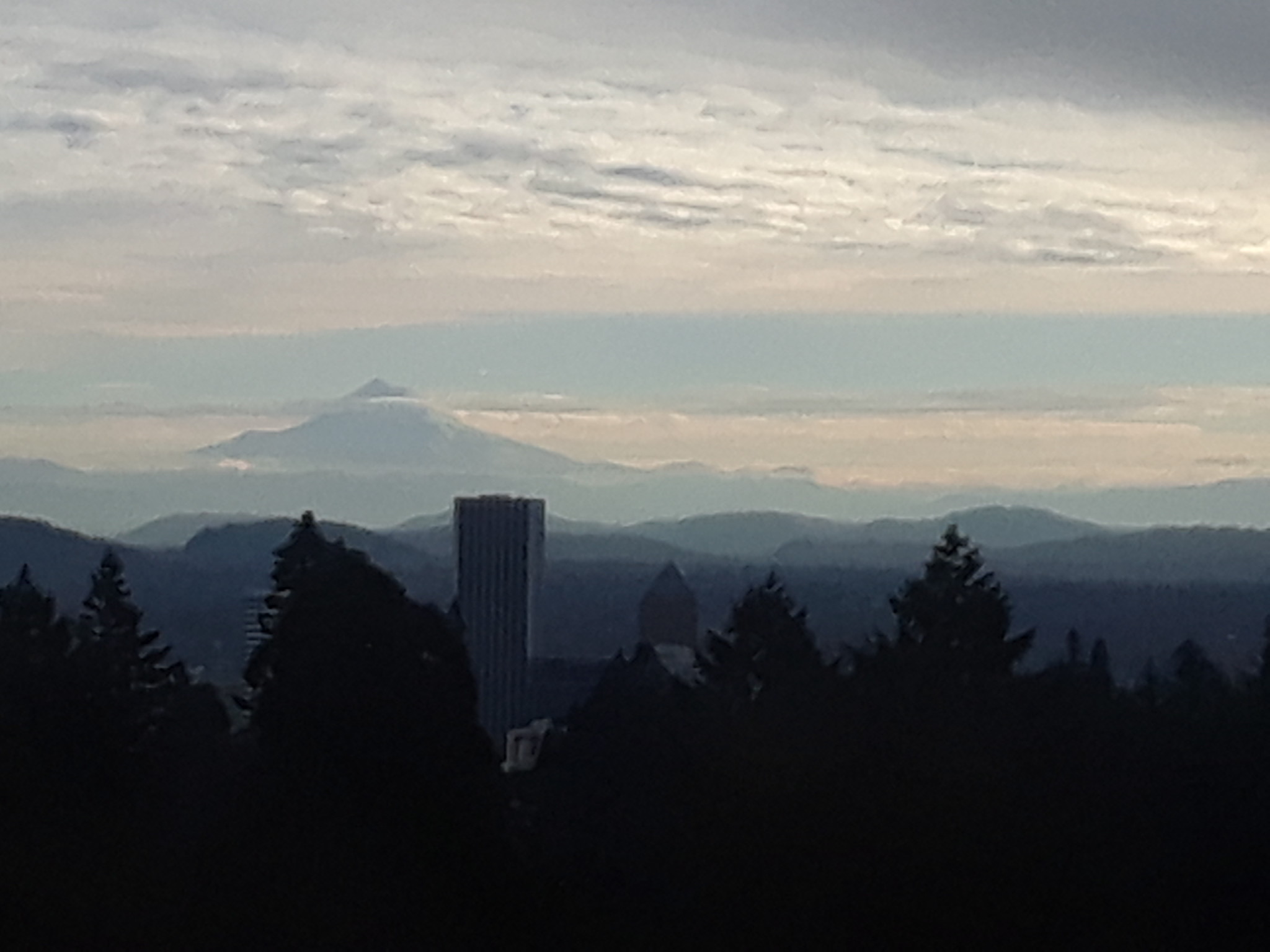How clean is the air above Portland, and how clean (or not) will it remain? Protecting air quality and blocking the widening of the I-5 freeway are two essential tasks for the City of Portland and will determine the answers to these questions.
First, Portland Councilmembers should pass the Clean Air Protection Program. Second, they must stand by their Climate Emergency Declaration, not support expansion of I-5 in the Rose Quarter nor in the current ODOT plan for the Interstate Bridge Replacement (IBR). Our elected officials must protect public health and safety, not cave to pressure from business interests, nor from ODOT.
Protecting air quality
The recent Cascadia Action Environmental Justice Report documents how hard-hit N/NE Portland is by pollution. Poor air quality is a persistent environmental justice issue, even more essential to address in the time of COVID. City investments in reducing air pollution and greenhouse gasses (GHG) need to match the scale of the problem. This includes generating sufficient revenue to fully address Portland’s air quality issues and mitigate public health impacts by scaling up the fees in the Clean Air surcharge and increasing both standard permit fees and Title V fees.
Frontline and grassroots community members most impacted by industry pollution, not business or industry interests, should sit on the Clean Air Advisory Committee. These community representatives should be empowered with full access to data about, and influence on, program oversight, implementation, and evaluation. Industries and businesses can participate through Good Neighbor Agreements or other proactive mitigation processes outside of the Advisory Committee process. For the development of trust and real solutions, there must be full transparency and active involvement of those most impacted. The City should quickly pass the Clean Air Protection Program.
Blocking the widening of the I-5 freeway
It is also critical that the City weigh in against ODOT’s efforts to get infrastructure funding from the federal government until ODOT has agreed to:
- implement congestion pricing, with those funds going towards health impact mitigation, not freeway expansion;
- increase multi-modal transportation options including rapid, low-cost, efficient mass transit as well as ride-sharing, pedestrian, and bike options, not increase vehicle miles traveled by adding additional car lanes; and
- conduct a health impact assessment for the I-5 corridor between downtown and the River crossing.
The people of Portland cannot afford additional health impacts from wider freeways. Furthermore, at this time of climate emergency, the City must do everything in its power to reduce GHG emissions by approximately 10% annually. More auto and truck traffic lanes go directly against both of those goals and will induce additional demand. The City’s Climate Emergency Declaration clearly states the goals of reducing vehicle miles traveled and requiring demand management, while recognizing that expanding roadways does not solve congestion, but increases emissions.
The City must hold true to their commitments and prioritize environmental justice — working towards healthier communities for all.

